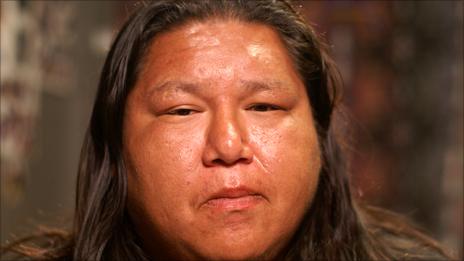Homeless alcoholics 'falling through the cracks'
- Published
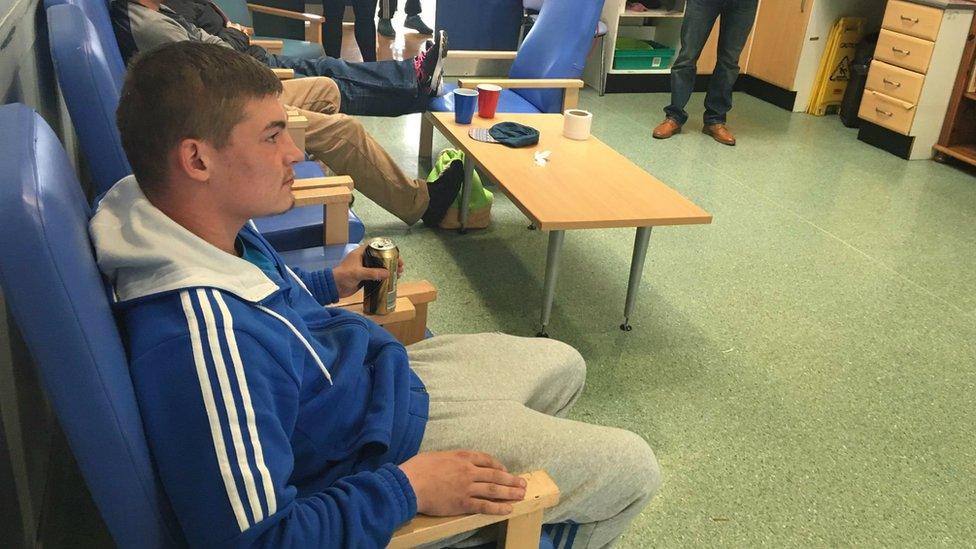
Darragh is on an alcohol management programme which allows him a certain amount of alcohol per day
World Homelessness Day draws attention to more than 18,500 homeless people in Northern Ireland, but those with addiction issues are falling through the cracks, according to a homeless charity.
Darragh Kerr, 23, who has been living on the streets and battling addiction, says alcoholics in Northern Ireland are not getting the help they need.
Mr Kerr is currently a full-time resident at a unique alcohol management programme in Belfast and believes he would be dead without the service.
The Stella Maris scheme, run by Depaul, is designed to help people with alcohol issues reduce their drinking through a tailored alcohol allowance, with the number of units consumed being decided on by health professionals and controlled by staff.
Mr Kerr, who began drinking when he was 12 and has been homeless since his mid-teens, had to wait for several years to be admitted to the Depaul programme.
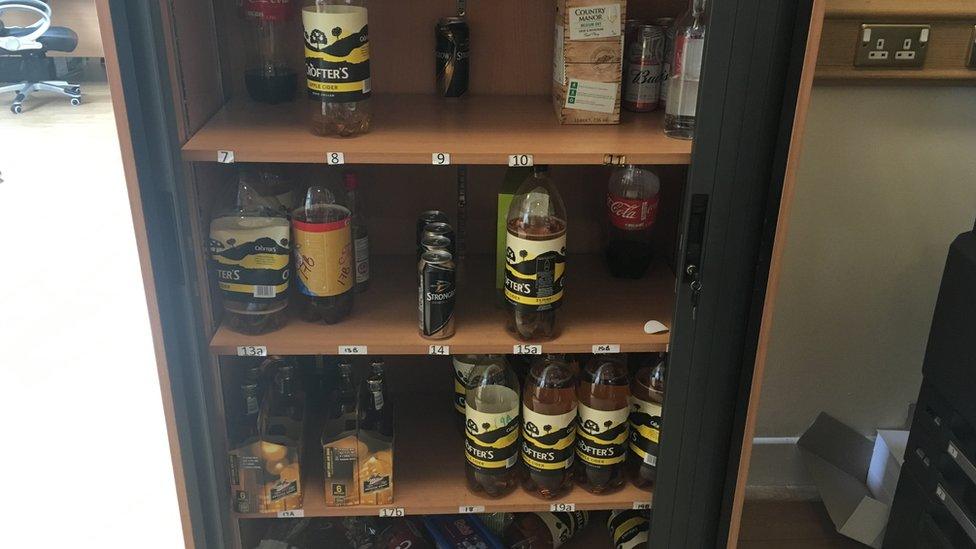
Drinks at Stella Maris are given out according to each individual's management programme
He said he tried to get help over the years, but was rejected because of his alcohol dependency.
"I was in a few places, but they threw me out because you're not allowed in there under the influence and they knew that I was a chronic alcoholic," he told BBC News NI.
"If it wasn't for the people here I would be dead."
Mr Kerr has been a resident at Stella Maris for about a year.
"They've really, really, helped me," he said.
"We're doing a reduction plan and everything is going well."
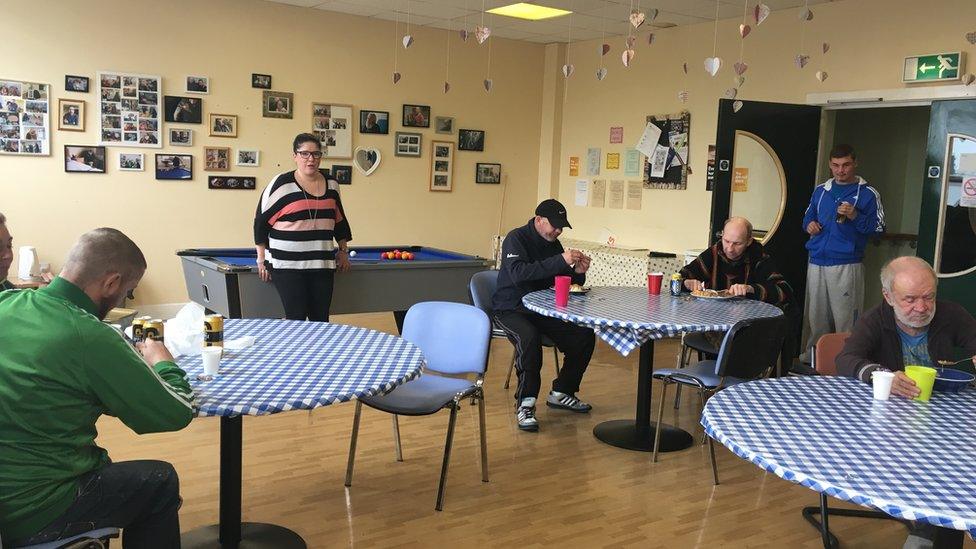
Stella Maris has 28 beds for homeless alcoholics -and has a long waiting list
'Psychological problems'
Many of Mr Kerr's fellow residents have unique needs, he added.
"People in here have got psychological problems," he said. "They can't look after themselves; it's a place for vulnerable adults."
Without the structured alcohol management Mr Kerr believes he would not have been able to reduce his intake.
"I wake up in the morning and I say to myself: 'I don't want to drink today.'
"But I would get that rattling and I would take seizures coming off the drink.
"If it wasn't for this place I would be buying bottles and bottles of cider, of vodka. You can't do that here."
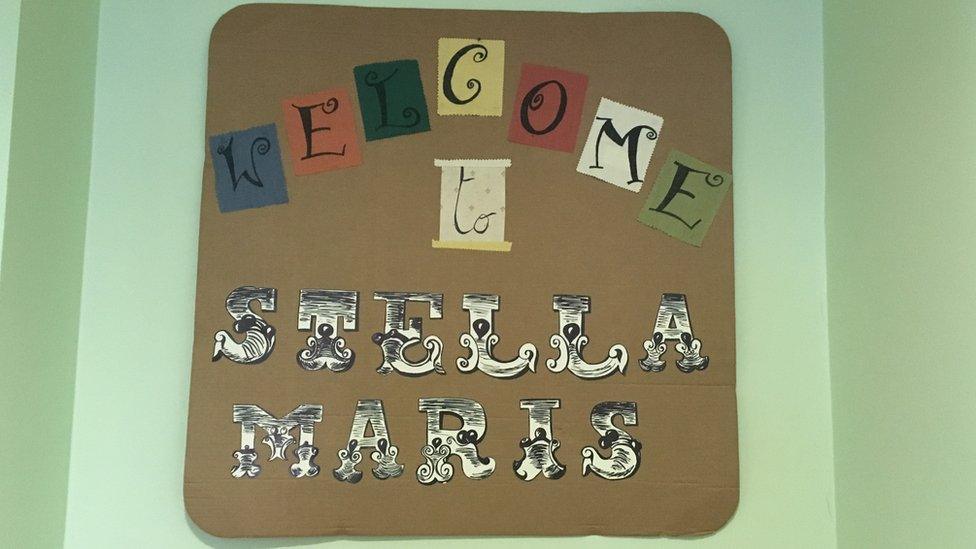
The NIHE says there are about 18, 628 homeless people in NI
Mr Kerr is now thinking of his future.
"I have an offer for a flat now, I hope to get off the drink, and then I'll do some volunteering here," he said.
"I want to help other people in my same situation."
Kerry Anthony, Depaul's chief executive, said that often access to help in Northern Ireland is slow, and the services available can be the wrong kind.
"We know that waiting lists are long, we know the requirements in terms of preparation to get into detox can make it very difficult for a homeless person to prepare," she said.
"For a small cohort of people, getting in to hostel accommodation (even a wet hostel) doesn't work for them. They'll leave, they'll walk out."
Stella Maris is always full, and there is always a waiting list, said Ms Anthony.
"We opened it because it was a pragmatic response to people who really needed support around their addiction issues," she told BBC News NI.
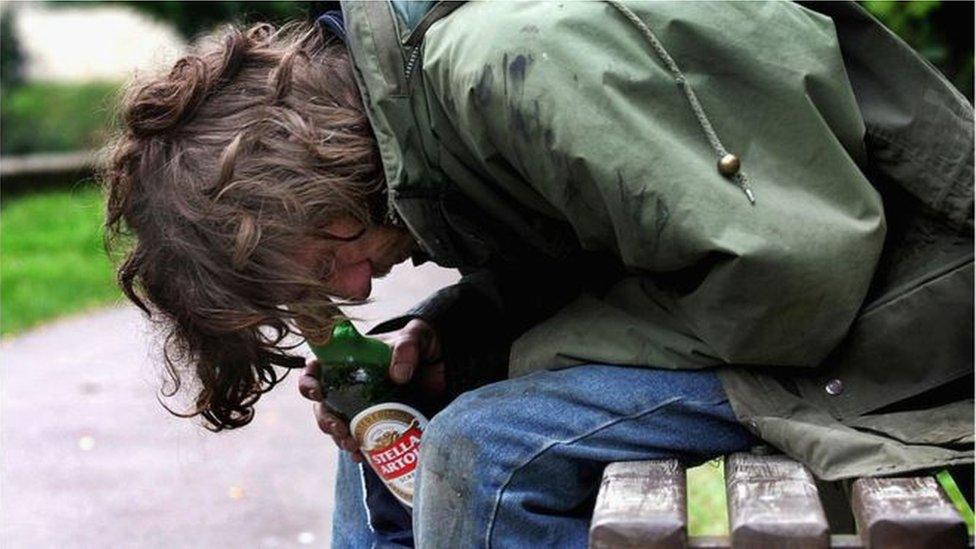
39% of people audited in a homeless survey in Belfast were 'street drinkers'
'Street drinkers'
There are approximately 18,628 homeless people in NI, external, according to the last available figures from the Northern Ireland Housing Executive (NIHE).
While there are no exact statistics for the number of homeless alcoholics, a street activity audit carried out in January 2016 by Depaul and the Welcome Organisation in conjunction with the NIHE, found that 39% of people on the streets in Belfast were so-called street drinkers., external
Kerry Anthony said the solution to homeless alcoholics "falling through the cracks" was cohesion.
"We need to ask ourselves how can we work better together," she said. "I think our statutory agencies can work differently and we can work differently-together."
A spokesperson for the Department for Communities - the department responsible for homelessness - said tackling homelessness required a number of organisations in the statutory and voluntary sector to work together - and was much more than just a housing issue.
"The provision of addiction services is the responsibility of the Department of Health," said the spokesperson.
The Department of Health told the BBC: "Health and social care is available on the basis of clinical need, to everyone equally, including homeless people and rough sleepers.
"Whilst services are available, there is increased difficulties in homeless people and rough sleepers accessing those services, and that is a key area that the department is addressing in conjunction with the Public Health Agency.
"There is a range of alcohol and drug services available across the north of Ireland."
- Published21 March 2016
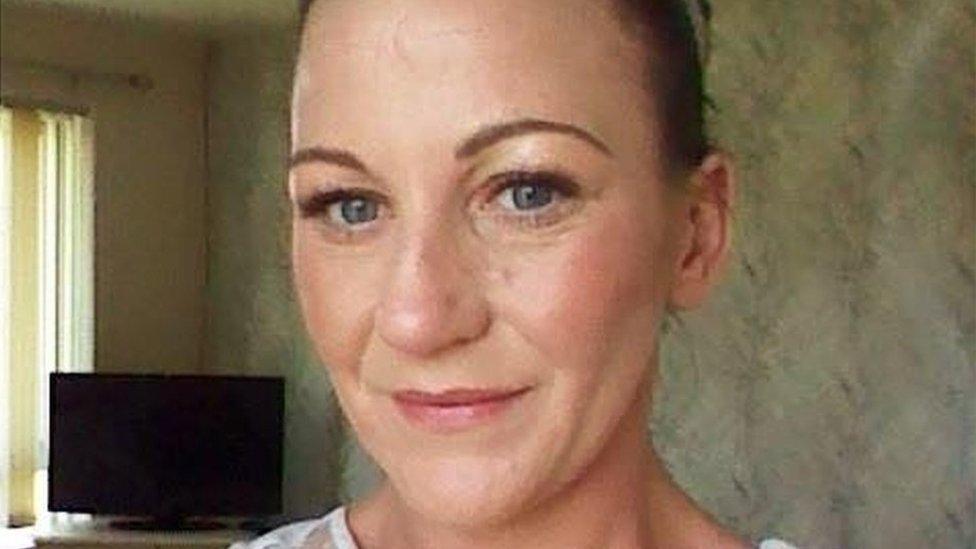
- Published25 February 2016
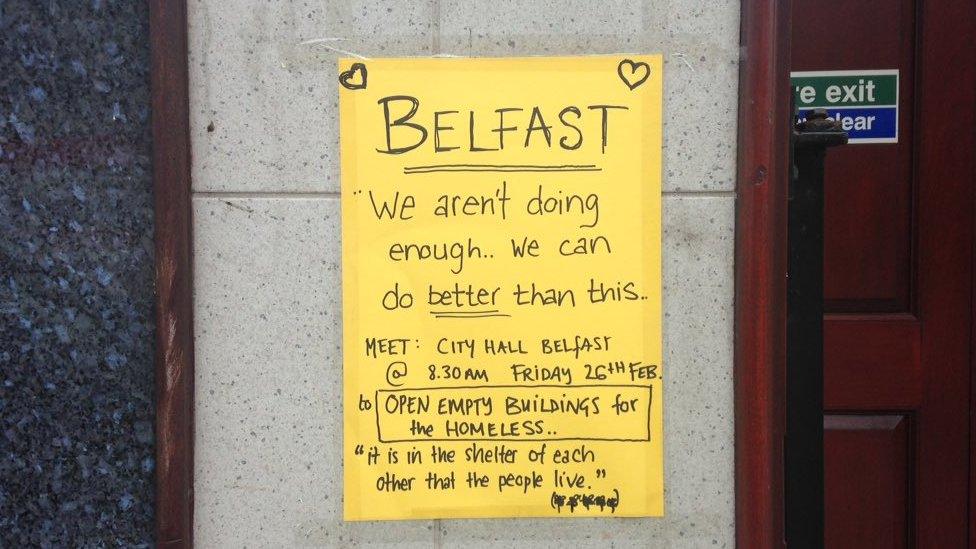
- Published7 July 2016
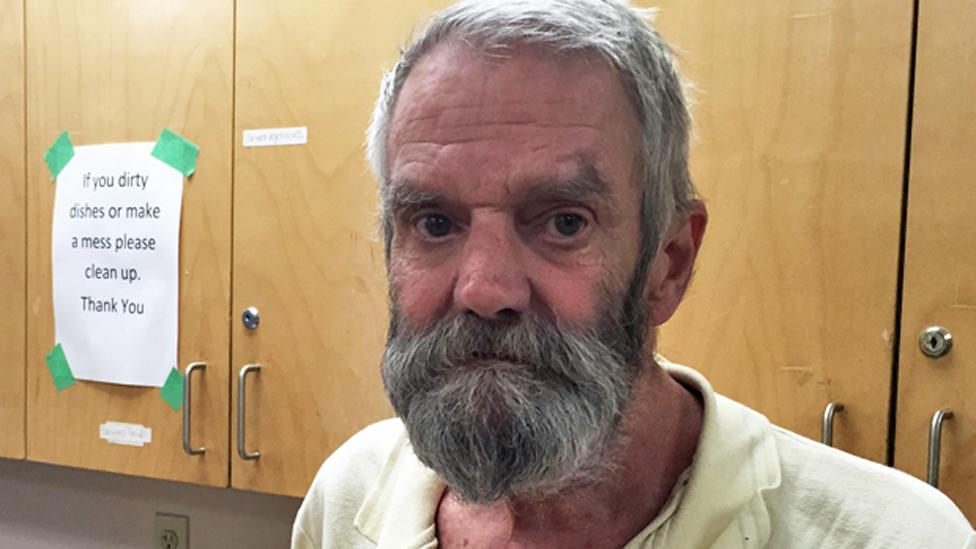
- Published28 June 2011
